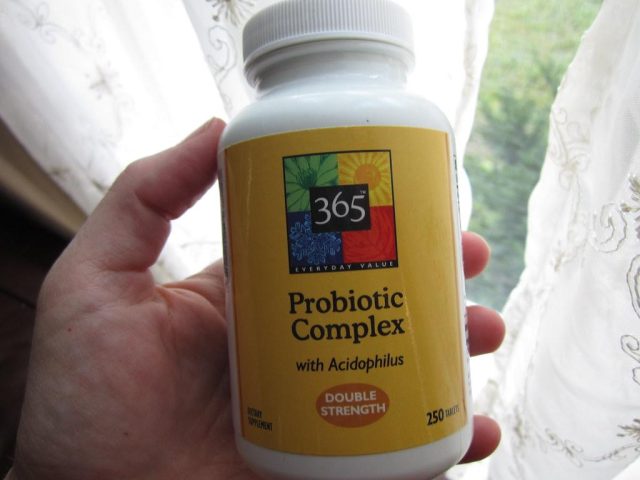In the hustle and bustle of modern life, it’s easy to overlook the silent powerhouse working tirelessly within us: our gut. Often dismissed as mere digestion machinery, our gut is actually a complex ecosystem that plays a crucial role in our overall health and well-being. For many, the journey to better health starts with understanding the intricate world of probiotics. These beneficial bacteria are not just buzzwords in the health community; they are vital allies in maintaining a balanced gut environment. In this guide, we aim to demystify probiotics, offering you a compassionate and comprehensive look into how these tiny organisms can transform your gut health. Whether you’re grappling with digestive issues or simply seeking to enhance your well-being, our goal is to equip you with the knowledge and confidence to make informed decisions about your health. Let’s embark on this journey together, exploring the profound impact probiotics can have on your life.
Choosing the Right Probiotics for Your Unique Needs
Finding the perfect probiotic can feel like searching for a needle in a haystack, but understanding your body’s specific needs can make the process simpler. Begin by considering your health goals. Are you looking to enhance digestion, boost immunity, or address specific conditions like IBS or lactose intolerance? Different strains of probiotics serve different purposes, so identifying your primary focus can help narrow down your choices.
It’s also crucial to take into account your current health status. If you have any existing health conditions or are on medication, consult with a healthcare professional before starting any probiotic regimen. This ensures that the probiotics will work harmoniously with your body rather than causing unintended side effects.
- Bifidobacterium: Often recommended for those seeking improved digestion and immune support.
- Lactobacillus: Known for aiding in lactose digestion and promoting vaginal health.
- Saccharomyces boulardii: A beneficial yeast used to combat diarrhea and maintain gut flora balance.
Remember, the effectiveness of probiotics can also depend on the delivery method. Some people may find that capsules work best, while others may benefit more from fermented foods or powders. Trust your instincts and listen to your body as you explore what works best for you.
Integrating Probiotic Foods into Your Daily Routine
Incorporating probiotic-rich foods into your daily meals can be a transformative step towards improving your gut health. These beneficial bacteria can be seamlessly integrated into your diet, enhancing digestion, boosting immunity, and even positively influencing your mood. To make the most of probiotics, consider these simple yet effective strategies:
- Start Your Day Right: Begin with a probiotic yogurt or kefir as part of your breakfast. Both are excellent sources of live cultures that support your digestive system from the get-go.
- Snack Smart: Opt for fermented snacks such as sauerkraut or kimchi. These not only add a flavorful kick to your meals but also deliver a healthy dose of probiotics.
- Enhance Your Meals: Incorporate tempeh or miso into your lunch or dinner recipes. Both are versatile and can be used in a variety of dishes, from salads to soups, infusing them with beneficial bacteria.
Remember, consistency is key. Integrating these foods into your routine doesn’t have to be overwhelming. Start with one or two options and gradually expand your repertoire. Listen to your body and adjust as needed, ensuring you reap the maximum benefits of a probiotic-rich diet.
Common Misconceptions About Probiotics and Gut Health
In the quest for better gut health, probiotics often emerge as a popular topic, but there are several misunderstandings that can lead to confusion. Let’s clarify some of these misconceptions to ensure you make informed decisions about your health.
- All probiotics are the same: One common myth is that all probiotic supplements offer the same benefits. In reality, different strains of probiotics serve different purposes. For instance, Lactobacillus acidophilus might aid in digestion, while Bifidobacterium bifidum could support the immune system. It’s essential to choose a strain that aligns with your specific health needs.
- Probiotics are only for digestive issues: While they are often associated with digestive health, probiotics also play a role in enhancing mental well-being, boosting immunity, and even improving skin conditions. Their benefits are multi-faceted, contributing to overall health beyond just the gut.
- More is better: Another misconception is that consuming a higher number of probiotics will yield better results. The truth is, quality and strain-specific benefits matter more than sheer quantity. It’s crucial to follow recommended dosages and consult with healthcare professionals to determine what’s best for your body.
Understanding these common misconceptions can empower you to make better choices regarding probiotics, ultimately leading to a healthier gut and overall well-being.
Supporting Your Gut with Lifestyle Changes and Probiotic Supplements
Embarking on a journey to support your gut health involves both mindful lifestyle adjustments and the thoughtful inclusion of probiotic supplements. Understanding the delicate balance within your digestive system can empower you to make informed choices that foster a thriving microbiome. Start by examining your daily habits and identifying areas where you can introduce positive changes.
- Dietary Adjustments: Incorporate a variety of fiber-rich foods, such as fruits, vegetables, and whole grains, to naturally nourish your gut flora. Aim to minimize processed foods and sugars, which can disrupt the balance of good bacteria.
- Stress Management: Chronic stress can negatively impact gut health, so prioritize activities that promote relaxation and mental well-being, like meditation, yoga, or simply spending time in nature.
- Regular Exercise: Engaging in physical activities not only supports overall health but also promotes a healthy gut by enhancing digestion and boosting the diversity of gut bacteria.
Integrating probiotic supplements into your routine can further bolster your gut’s resilience. When selecting a probiotic, consider factors such as the specific strains included, the potency of the product, and any additional ingredients that may complement your individual needs. Always consult with a healthcare professional to ensure the chosen supplement aligns with your health goals and current conditions.








































